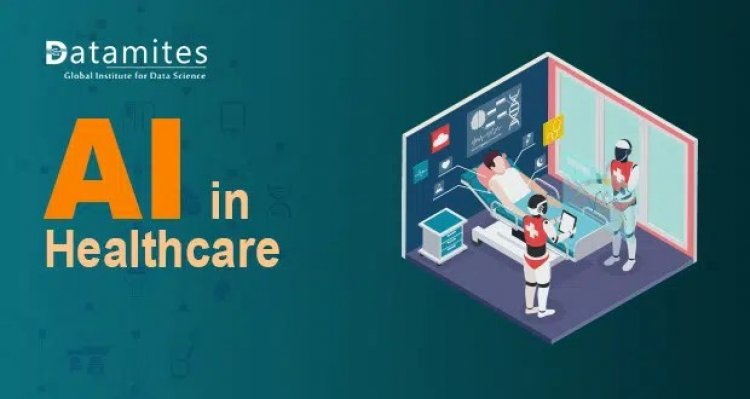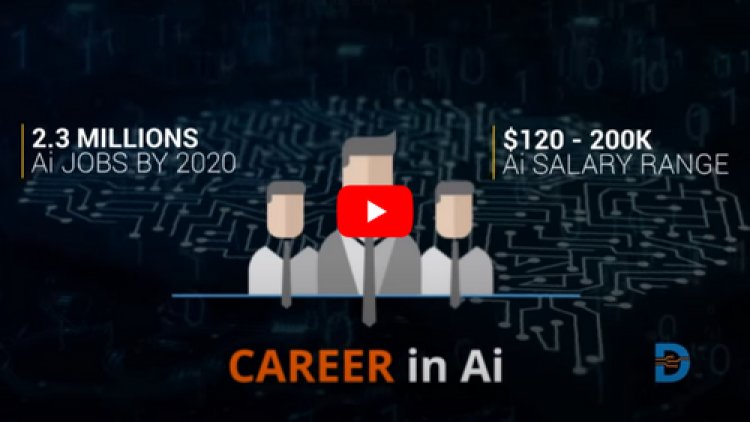What role does Artificial Intelligence play in Healthcare?
Artificial Intelligence revolutionizes healthcare by enhancing diagnostics, personalizing treatments, and improving patient care. AI-driven technologies streamline medical processes, enabling faster and more accurate decision-making.

Artificial intelligence is on the periphery of becoming a game-changing force in healthcare. How will the impact of AI-driven tools help clinicians and patients?
In its most basic form, AI refers to a computer’s or other technology’s ability to replicate human cognition, such as the ability to learn, think, and make decisions or conduct actions. The employment of machine learning (ML) algorithms and other cognitive technologies in medical contexts is referred to as AI in healthcare. In the field of healthcare, artificial intelligence (AI) refers to the use of computers to evaluate and act on medical data, usually with the objective of determining a particular result.
A notable AI use case in healthcare is the application of machine learning and other cognitive sciences for medical diagnosis. Using patient data and other information, AI can assist doctors and medical workers in offering more accurate diagnoses and treatment recommendations.
What role does AI play in healthcare?
Maintaining good health in the medical field – One of AI’s most notable significant gains is that it can help people stay healthy, reducing the need to see a doctor as frequently, if at all. People have already been impacted by the deployment of AI and the Internet of Medical Things (IoMT) in consumer health applications.
Individuals are urged to develop healthier habits by embracing technology tools and apps that help them maintain a healthy lifestyle on a proactive basis.
Additionally, AI helps healthcare providers truly understand the daily routines and needs of the people they care for, allowing them to provide more feedback, guidance, and support to help them stay healthy.
Early Detection – Artificial intelligence is already being used to diagnose diseases more precisely and in their early stages, such as cancer.
Consumer wearables and other medical devices are being used in conjunction with AI to monitor and detect potentially life-threatening episodes in patients with early-stage heart disease, enabling doctors and other caregivers to better keep track and discern possibly serious episodes at an earlier, more easily curable stage.
In many critical sickness cases, the prognosis for treatment is determined by how quickly the diseases are diagnosed. Ideally, symptoms appear early enough for us to recognize that something is wrong and for us to seek professional assistance. However, certain diseases lack early warning signs, and we frequently hear of cases when early warning signs arrive too late.
In addition, many people may not seek medical advice on a regular basis. The time it takes to see a doctor may also be a hindrance for some. This is where AI algorithms can assist in performing first-level screens to detect tiny characteristics that may indicate underlying concerns and then refer them to professionals.
Artificial Intelligence is already making progress in the epidemiology, allowing for better surveillance, prediction, and control of serious disease outbreaks such as Coronavirus. As new diseases spread over the globe, more and more data is generated. Furthermore, with so much data available, AI models may be better taught. If artificial intelligence (AI) is correctly blended into the system in the future, the odds of finding a cure will skyrocket.
Disease classification – Deep learning technology’s ability to examine images and find patterns brings up the possibility of developing algorithms to aid doctors in diagnosing diseases more quickly and precisely. Additionally, such algorithms can improve their accuracy at guessing the proper diagnosis overtime via learning.
In medical pictures such as MRIs, x-rays, and CT scans, AI-driven software can be taught to properly recognize indications of a certain disease. Similar technologies that process pictures of skin lesions already employ AI for cancer diagnosis. Doctors can more correctly identify patients and give the best treatment using such instruments.
Making a Decision – Predictive analytics can support clinical decision-making and actions, as well as prioritize administrative activities, to improve treatment by aligning massive health data with suitable and timely judgments.
The use of pattern recognition to correctly identify at risk of getting a condition – or seeing one worsen – as a result of lifestyle, environmental, genomic, or other factors is another area where AI is gradually taking root in healthcare.
Treatment options based on artificial intelligence – Even after an illness has been identified and categorized, the treatment process can result in further complications. A treatment plan not only comprises prescription medications and exercises, but it also includes coordinating care plans, assisting patients in managing their treatment programmes, and taking into account the possibility of an adverse event.
Clinicians can now use modern AI algorithms to help them put together a comprehensive illness strategic plan. Furthermore, they are frequently employed to improve surgical robots that do exceedingly difficult procedures.
You can also refer:
Artificial Intelligence Certification Course Fee in 2022
What is the Salary of an AI Expert in the Asia Pacific Region?
To make life long and healthy life – AI is frequently anticipated to be a crucial technology for extending people’s lives and reducing the need for hospitalization.
To begin with, algorithms can process all of our health, lifestyle, and living environment data for us. As a result, they can calculate our biological age and give us health advice.
AI has already been integrated with aging research to develop an aging clock that will aid in tracking immunosenescence levels and identifying new strategies to help the elderly improve their immune systems.
Conclusion
Because of its crucial role in a productive, thriving society, healthcare is one of the most important areas in the broader landscape of big data. The use of AI in healthcare data can actually mean the difference between life and death. Doctors, nurses, and other healthcare personnel can benefit from artificial intelligence in their regular work. Artificial Intelligence in the health sector can improve patient outcomes through improving preventative care and quality of life, as well as producing more accurate diagnosis and treatment regimens.
By analysing data from the government, healthcare, and other sources, AI can help anticipate and track the spread of contagious diseases. As a result, AI has the potential to be a critical instrument in the fight against diseases and pandemics in global public health. There’s still a long way to go with AI in healthcare!
DataMites Training Institute provides a globally accredited Artificial Intelligence course, ensuring industry-wide recognition. Covering machine learning, deep learning, and AI tools, the program includes hands-on projects and expert mentorship. Offering both online and classroom training, it caters to beginners and professionals alike. With its esteemed certification, DataMites equips learners for successful careers in AI-driven industries.
The LinkedIn list of jobs shows that there are over 45,000 job opportunities for artificial intelligence employment. Knowledge and experience in AI will, indeed, propel you to the top. Get Artificial intelligence training from DataMites, a leader in providing certified training in the best and most popular courses available, including AI, Data Science, Machine Learning, and Python, to mention a few!
Check out the video – Artificial Intelligence Course Introduction.

 Thushara C.P
Thushara C.P 